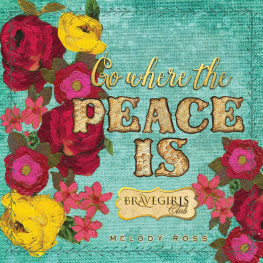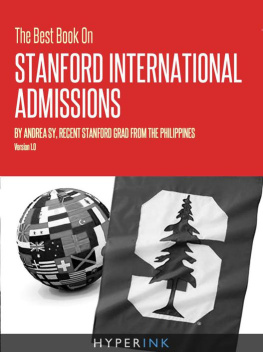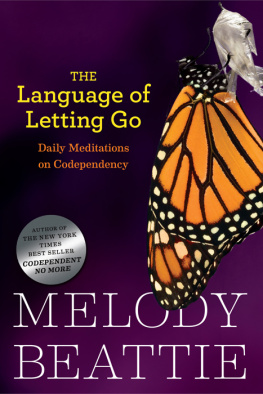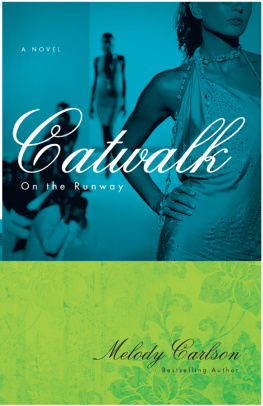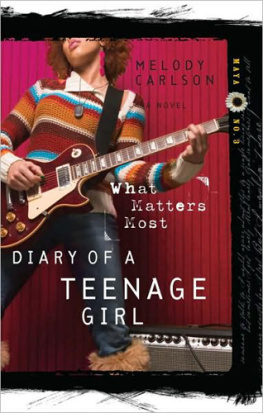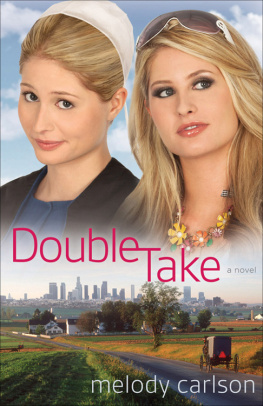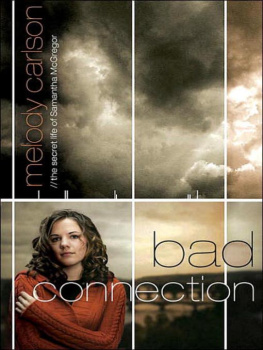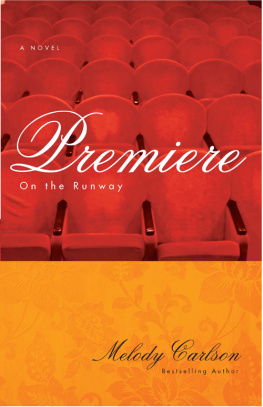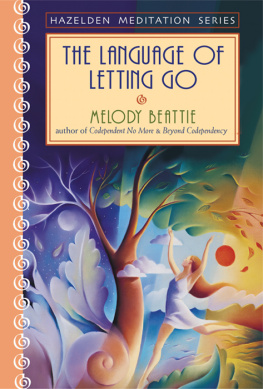Melody Stanford Martin - Brave Talk
Here you can read online Melody Stanford Martin - Brave Talk full text of the book (entire story) in english for free. Download pdf and epub, get meaning, cover and reviews about this ebook. publisher: Broadleaf Books, genre: Home and family. Description of the work, (preface) as well as reviews are available. Best literature library LitArk.com created for fans of good reading and offers a wide selection of genres:
Romance novel
Science fiction
Adventure
Detective
Science
History
Home and family
Prose
Art
Politics
Computer
Non-fiction
Religion
Business
Children
Humor
Choose a favorite category and find really read worthwhile books. Enjoy immersion in the world of imagination, feel the emotions of the characters or learn something new for yourself, make an fascinating discovery.

- Book:Brave Talk
- Author:
- Publisher:Broadleaf Books
- Genre:
- Rating:3 / 5
- Favourites:Add to favourites
- Your mark:
- 60
- 1
- 2
- 3
- 4
- 5
Brave Talk: summary, description and annotation
We offer to read an annotation, description, summary or preface (depends on what the author of the book "Brave Talk" wrote himself). If you haven't found the necessary information about the book — write in the comments, we will try to find it.
Brave Talk — read online for free the complete book (whole text) full work
Below is the text of the book, divided by pages. System saving the place of the last page read, allows you to conveniently read the book "Brave Talk" online for free, without having to search again every time where you left off. Put a bookmark, and you can go to the page where you finished reading at any time.
Font size:
Interval:
Bookmark:
BRAVE TALK
Building Resiliant Relationships in the Face of Conflict
Copyright 2020 Melody Stanford Martin. Published by Broadleaf Books, an imprint of 1517 Media. All rights reserved. Except for brief quotations in critical articles or reviews, no part of this book may be reproduced in any manner without prior written permission from the publisher. Email copyright@1517.media or write to Permissions, Broadleaf Books, PO Box 1209, Minneapolis, MN 55440-1209.
Cover illustration: Melody Stanford Martin
Cover design: James Kegley
Print ISBN: 978-1-5064-6244-8
eBook ISBN: 978-1-5064-6245-5
For Amy, my mother.
Though we may always disagree,
you never cease to
sharpen and inspire me.
I am filled with gratitude for so many people who have been instrumental in the journey of this book.
I owe a huge debt of gratitude to Tom Porter, Founder of the Religion and Conflict Transformation program at Boston University. This is the space where I first was able to explore academic and personal conflict transformation with transparency and rigor. Thank you, thank you, thank you, Tom, for your incredible work. This book would not exist without you.
Profound thanks to my publisher, Broadleaf Books, especially my editor, Lisa Kloskin, and former editor, Silas Morgan, for seeing enough potential in this book to give it a whirl. I am tremendously grateful for the faith you have shown and the doors you have opened. Thank you to everyone at Broadleaf who made this book what it is.
Thank you to my parents, Revs. Joe and Amy Hunt; my sisters, Marissa, Maddy, and Megan; and my brothers-in-law Fr. Scott and Evan. You have shown great patience, vulnerability, and grace in our long family struggle with religious and political impasse. Though its been rocky at times, I am deeply grateful that you continue to put love first. Thank you for your leadership and courage in our times of conflict. I am inspired by you all. A special note to thanks to my mother, Amy, for her insight and perspective in helping to develop this work. Mom, for all our conversations, your encouragement, your countless hours of editing, and for all the time youve made to artfully disagree with me: I am in awe of your mind and heart.
Thank you to Patricia Heinicke, astute managing editor, friend, and co-founding editor of IndigiPress. Your amazing work and wisest feedback helped get this book into pitch-ready shape.
Many authors and thinkers have inspired and challenged my imagination as I was writing this book. Notable among them are John Paul Lederach for tremendous pioneering work in conflict transformation; the framework Donna Hicks so elegantly outlines in Dignity; Rupert Rosss on-the-ground demonstration of restorative justice in Return to the Teachings; the work of Emily Townes on intersectionality and her work on fantastic hegemonic imagination in Womanist Ethics and the Cultural Production of Evil; the pioneering work of Paulo Freires Pedagogy of the Oppressed; the theme of seeing in Amanda Palmers The Art of Asking; the work of allegory in Hannah Hurnards Hinds Feet on High Places, which made such an impression on me as a child; Nietzsches Thus Spoke Zarathustra, which expanded my capacity as an adult; and the essays of Anne Lamott and Donald Miller. In addition, countless storytellers and poets have taught me the power of narrative in teaching ethics and social wholeness.
I have been blessed with phenomenal educators and role models who taught me to love literature, writing, and critical thought: Jennifer Musselwhite, Jonathan Trumbull, Jeff Montiero, Dr. Scott Sullender, Dr. Buyoung Lee, Dr. Pamela Lightsey, Dr. Kwok Pui Lan, Dr. Elisabeth Schssler Fiorenza, Dr. Nimi Wariboko, Dr. Michelle Sanchez, Dr. Steven Sandage, and Dr. Mary E. Hunt. All of these thinkers and many more have inspired me to teach as I have so carefully and patiently been taught. Special thanks to Dr. Pamela Lightsey for modeling transformative intersectional pedagogy. And finally, I want to thank Elisabeth Parsons, instructor at BUSTH, who first encouraged me to look outside of academic writing and bring my ideas to a general audience. I was annoyed at the time, but today I stand humbled and grateful that you saw this potential in me.
I thank Dr. Debbie Blades, my friend and mentor, who saw early potential in me as a thinker and theologian. She who tells it like it is, who laughs from her gut, and who taught me the strength of my woman power, I dance with you.
Thank you to Rev. Bentley Stewart, conversation partner, spiritual space maker, and dear friend: you have been with me through the ugliest and happiest of times. I salute the many ways you have taught me about chaplaining discomfort. Thank you for being one of the first people I could lean on for shaping the framework of this book.
Thank you to Rev. Allen OBrien, Jeff Manildi, and all the folks at Irenicast, for helping me find my public voice in over a hundred podcast episodes working as my sassy alter ego, Mona. Thank you for your tireless diligence and questing minds.
Thanks to my legendary writers group. Joe Wolfpack Downey, Johnny Burrfly Gall, and Corey Surrogate Martin, thank you for your help in workshopping and strengthening this book.
Thank you to the wonderful Steve Dry, my dearest friend Christy Wright, and the Harvard-Epworth Entrepreneurs League. I am grateful for all the discussions of this work over so many lovely meals. You were keen sounding boards in helping me file down the sharp edges of my ideas.
Finally, thank you to my brilliant Coreylove of my life, partner in goofydomwho puts up with the brunt of my clumsiness and challenges me in every way. He who instead of laughing when I said I wanted to write a book, replied without hesitation or guile, Go, baby, go! You renew my faith in love every day.
I was sitting around a campfire in the backwoods of Maine with my siblings and our respective partners. We were tired, it was late, we hadnt seen each other for a year, and for some god-awful reason, we started talking about religion and politics.
The conversation became explosive so fast, it was as if we had been plopped into a Die Hard movie. We were open and honest with each other in ways that only family can be: step one, obtain fire poker; step two, heat with lava; step three, aim for the heart. The repercussions lasted months.
How could we have prevented this? Should we have prevented this? Did anything valuable happen in the rugged truth-telling of that night? Would we be able to bounce back in the wake? Would we ever be able to engage hard topics again?
Many of us struggle with these kinds of tensions in our close relationships. Conversations like this are the inspiration for Brave Talk. This book takes a real look at the impact of interpersonal conflict in our lives and teaches better ways we can deal with it.
* * *
Conflict is central to our human experiencecentral to our myths, histories, and even the testing grounds of our entertainment. It saturates our familial and national landscapes, seeping into our neighborhoods, and even creeping into our silent personal visions of the future.
Humans are basically guaranteed to experience conflict. We may even encounter conflict that seems to have no beginning and no end.
Font size:
Interval:
Bookmark:
Similar books «Brave Talk»
Look at similar books to Brave Talk. We have selected literature similar in name and meaning in the hope of providing readers with more options to find new, interesting, not yet read works.
Discussion, reviews of the book Brave Talk and just readers' own opinions. Leave your comments, write what you think about the work, its meaning or the main characters. Specify what exactly you liked and what you didn't like, and why you think so.

